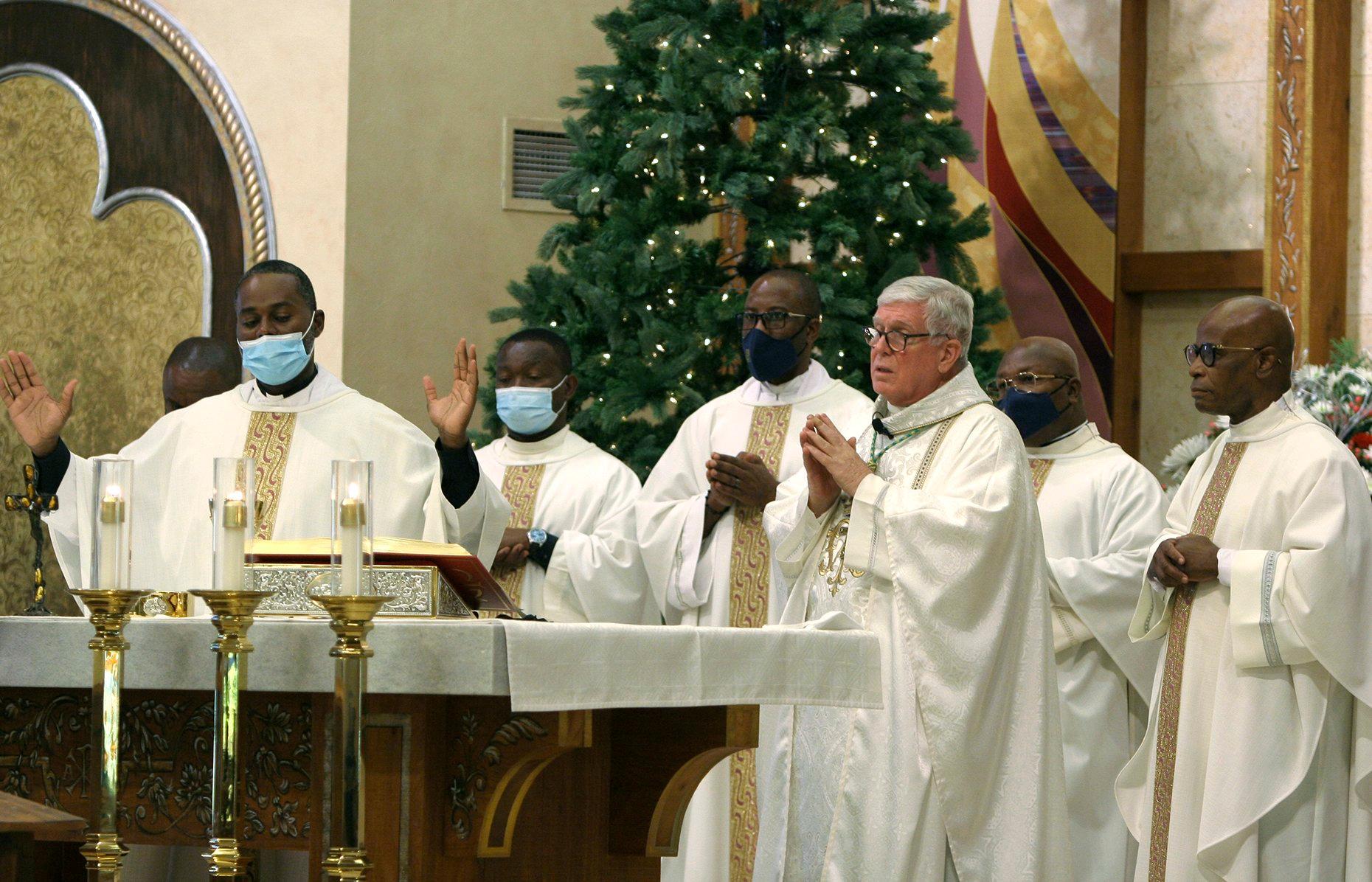BONITA SPRINGS, Florida — Even though Myrlande Cola left her native Haiti 23 years ago, she still holds a fierce love for her country, especially Jan. 1 when she joins other community members to celebrate the independence of Haiti from France.
“This Mass is a big thing for me,” said the Immokalee resident who traveled to Bonita Springs to celebrate Mass with fellow Haitians. “I took off work six months ago to be able to attend this. I cannot miss this Mass.”
Cola was speaking about the annual Mass for the Haitian community in honor of both the Solemnity of Mary, Holy Mother of God and the 217th anniversary of Haiti being the first independent republic in the Caribbean. The Mass is hosted by the Diocese of Venice along with the Haitian Catholic community. It was celebrated at St. Leo the Great Parish in Bonita Springs Jan. 1.
The Mass usually draws about 1,000 people from throughout the Diocese of Venice and includes a visit from a bishop or archbishop from Haiti. But precautions against the coronavirus this year meant a visiting prelate could not travel and buses could not be used to bring in Haitians from cities throughout the diocese.
Father Jean-Marie Fritz Ligonde, director of Haitian Ministry for the Diocese of Venice and parochial vicar of St. Columbkille Parish in Fort Myers, said the community was still blessed to have the opportunity to celebrate the special day.
As he does every year, Venice Bishop Frank J. Dewane celebrated the Mass with Ligonde and five other Haitian priests of the diocese. The precautions might have made the crowd gathered much smaller, but the spirit of the Mass was just as joyous and enthusiastic.
“We expected between 300 and 350 and are pleased with what we have,” Ligonde said. In his homily, he compared the day’s Marian feast to Haiti’s Independence Day. The Solemnity of Mary, Mother of God, is the first Marian feast, and Haiti is the first independent Black nation in the Western Hemisphere when the slaves there gained independence from France on Jan. 1, 1804. Haitians should find strength in Mary’s example, he said.
“Because Haiti is becoming poorer and poorer now, it is time that we engage ourselves to make the resolution to go forward. We have to put action into our words,” Ligonde said. “Our motto as Haitians is ‘L’Union fait la force’ — our strength is in our union. We must show strength to move forward and develop our country.”
Dewane thanked the congregation for being present during this difficult time of living through the pandemic.
“I very much regret we couldn’t have a guest bishop for you. It is a long tradition, but I think you all understand,” he said. “It is my prayer that next year we will be full again. And we will have a bishop from Haiti who will be here. Let us keep one another united in prayer, for the well-being of all gathered here and all who have been here in the past and could not meet this year.”
The Mass ended with the congregation waving Haitian flags and singing their country’s national anthem.
Traditionally following the Mass, the congregation gathers in the parish center to enjoy soup joumou, a rich pumpkin soup. Ligonde explained how the French would make the soup and never offer it to the slaves. So, after the independence of Haiti, it became a tradition to enjoy the soup as a symbol freedom and equality.
“On Jan. 2, we celebrate the feast of our ancestors, and we have a big meal with turkeys. But on Jan. 1, we have our soup joumou. It is a meal. It is so rich, we could eat it all day,” Ligonde said with a smile.
But that tradition also had to be modified because of the coronavirus. Instead of sitting to have soup, the community held a drive-thru where families could still receive celebratory food, but instead of eating together, they would bring the meal home to their own families.
Gonzalez is editorial/online director at the Florida Catholic, newspaper of Archdiocese of Miami and the dioceses of Orlando, Palm Beach and Venice.













